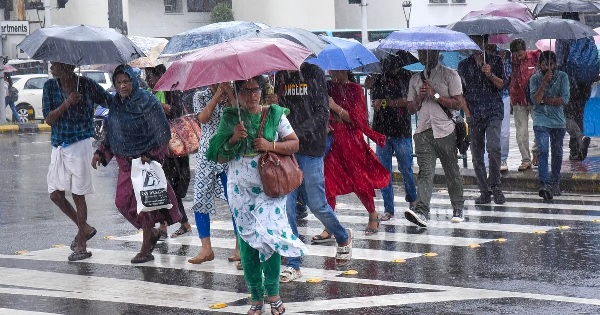
Ø Researchers have developed advanced statistical techniques to improve medium-range rainfall forecasts in Indian river basins
Ø Accurate rainfall forecasting is crucial for India's agriculture, economy, and flood management due to the diverse and unpredictable nature of rainfall patterns
BHOPAL, 19th September 2023: Indian Institute of Science Education and Research Bhopal (IISER Bhopal) Researchers collaborated with Australian universities and research organizations to develop statistical techniques to enhance the accuracy of rainfall predictions in Indian River basins.
The team aims to mitigate the challenges posed by the erratic nature of rainfall, a crucial factor for India's agricultural productivity and overall sustenance.
The findings of the research have been published in journals, the Hydrological Sciences, the International Journal of River Basin Management and the Journal of Hydrology: Regional Studies.
The collaborative team includes researchers Dr Sanjeev Kumar Jha, Assistant Professor, Department of Earth and Environmental Sciences, IISER Bhopal, and his research scholars, Dr Nibedita Samal, Dr Ankit Singh, Mr R. Ashwin, and Mr Akshay Singhal from IISER Bhopal along with Dr Qichun Yang, and Prof. Q. J. Wang from the University of Melbourne and Dr David E. Robertson from the Commonwealth Scientific and Industrial Research Organization in Australia.
Rainfall patterns in India exhibit considerable variation in intensity, frequency, and distribution across both space and time. Accurate rainfall forecasting is of paramount importance for a nation that heavily depends on rainfall to drive agricultural operations and fuel economic progress. Rainfall predictions are also important to help the country tackle flooding issues and manage water resources during the erratic monsoon months of June, July, August, and September.
The research team employs diverse statistical approaches to predict rainfall patterns. In an earlier study published in 2021, the team used Quantitative Precipitation Forecast (QPF) data obtained from a numerical weather prediction model to forecast the flow of water in rivers. By analysing a range of observational datasets including satellite and rain gauge data, the researchers evaluated forecast accuracy across major river basins like Ganga, Narmada, Mahanadi, Tapti, and Godavari.
This year, the team implemented a statistical model called the Seasonally Coherent Calibration (SCC) model to enhance rainfall forecasts in the Narmada and Godavari River basins. The SCC model significantly improved the skill of forecasts over a five-day lead time. The calibrated precipitation forecasts were further applied to generate streamflow predictions using a Soil and Water Assessment Tool.
In yet another branch of research, the researchers focused on the Ganga, Mahanadi, Godavari, Narmada, and Tapti River basins, aiming to refine Indian summer-monsoon precipitation forecasts from the NCMRWF. They used a statistical approach called the Bayesian Joint Probability (BJP), originally used in Australia, to evaluate the approach's effectiveness in the context of India's monsoon-dominated climate. The study indicated that the BJP-based post-processing approach could substantially enhance forecast skills, particularly when considering only monsoonal precipitation forecasts.
Dr Sanjeev Kumar Jha emphasized that this collaborative research initiative between IISER Bhopal scientists and their Australian counterparts carries immense potential to revolutionize India's ability to anticipate and address rainfall-related complexities.
By applying innovative statistical methodologies to rainfall forecasts, the project promises indispensable insights for water management authorities and decision-makers, eventually fostering enhanced flood readiness and more effective water resource administration across the nation.
As Dr Sanjeev Kumar Jha aptly stated, “Accurate rainfall forecasting is not just about meteorology; it's about shaping a more resilient and sustainable future for our country.”
###
Click Here for More Latest News
